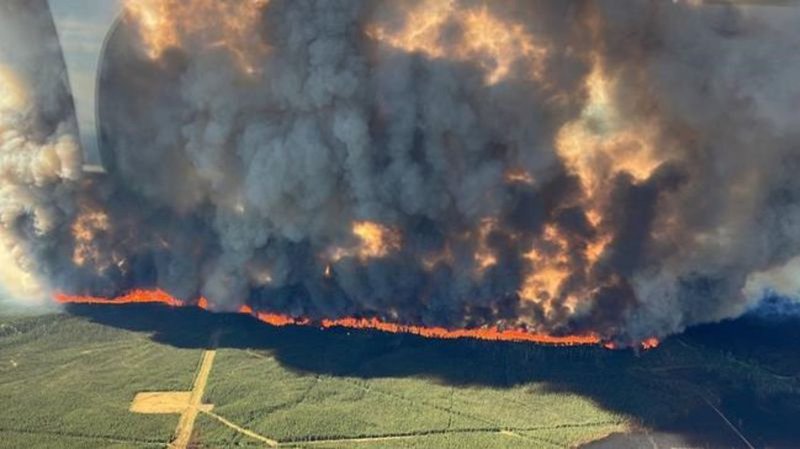
Eyes on the weather as fierce wildfire rages, forces evacuations in northeastern B.C.
VANCOUVER — Showers on Saturday could sprinkle an aggressive wildfire that has forced more than two-thousand people from their homes in northeastern British Columbia, but forecasters say thunderstorms could sweep the parched region before any rain arrives.
Environment Canada says the thunderstorms in the Tumber Ridge and Dawson Creek areas are coupled with heavy smoke and temperatures almost 10 degrees above normal.
That could complicate efforts to fight the raging West Kiskatinaw River wildfire, which has burned 96 square kilometres of bush and timber east of Tumbler Ridge in the three days since it was discovered.
The extreme fire activity prompted the District of Tumbler Ridge to skip an evacuation alert Thursday and jump right to an order requiring all 2,400 residents to get out immediately and seek refuge in Dawson Creek or Fort St. John.
